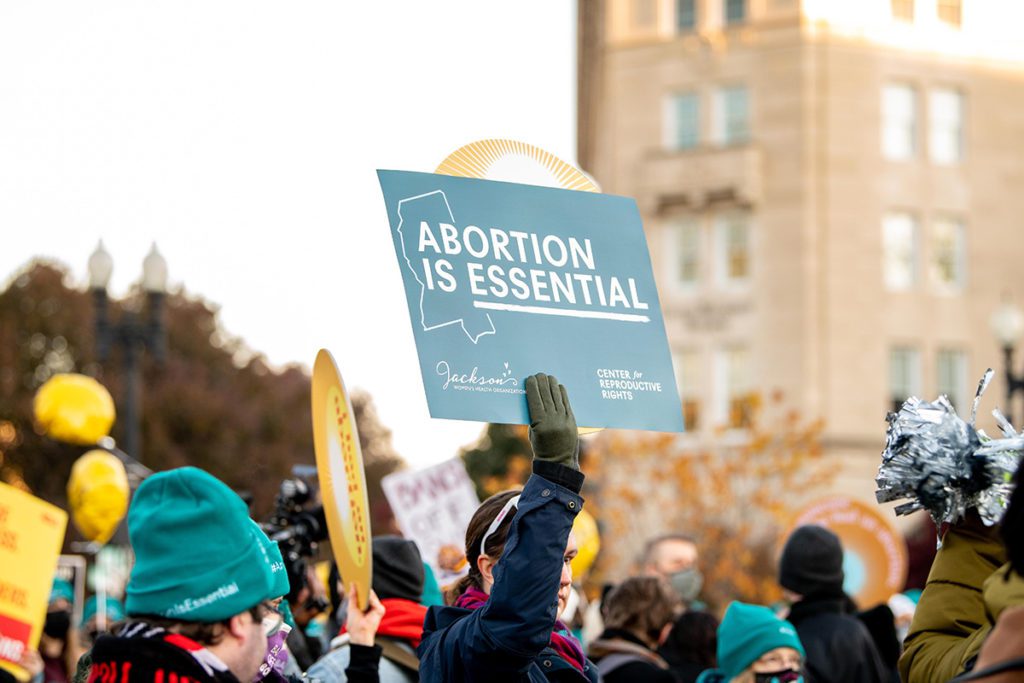Court Rules to Reinstate Significant Restrictions on Abortion Medication but Not to Revoke FDA Approval of the Drug
Mifepristone will remain available under current regulations due to an earlier U.S. Supreme Court order.

The Fifth Circuit Court of Appeals ruled on August 16 to reinstate burdensome pre-2016 restrictions on the abortion medication mifepristone but not to revoke the U.S. Food and Drug Administration’s (FDA’s) initial approval of the drug. The ruling in Alliance for Hippocratic Medicine v. FDA upheld part of a decision by a federal court in Texas.
Because of an order issued by the U.S. Supreme Court in April, the Fifth Circuit’s ruling will not take effect, and mifepristone will remain available under current regulations while litigation continues. The Department of Justice has announced that it will seek Supreme Court review of the Fifth Circuit’s decision.
Mifepristone is part of a two-drug regimen for medication abortion and was first approved by the FDA in 2000.
The lawsuit against the FDA was filed by anti-abortion advocates in November 2022 to challenge the FDA’s initial approval of mifepristone as well as the agency’s more recent actions to increase access to the drug.
The Fifth Circuit’s ruling left in place the FDA’s approval of the drug in 2000 and its approval of a generic version in 2019. But it ruled to roll back FDA actions to expand access to mifepristone and return to pre-2016 regulations that included a requirement for people to access the drug in person. Such restrictions, if allowed to take effect, would prohibit the drug from being sent through the mail or prescribed through telemedicine, making it much more difficult for patients to obtain abortion care in most states.
“This appeals court decision sets up a showdown at the Supreme Court over baseless attacks on medication abortion, which has been a lifeline since the high court reversed Roe last year,” said Nancy Northup, president and CEO of the Center for Reproductive Rights. “This order, if allowed to take effect, could jeopardize the FDA’s entire scientific system of drug approvals and would leave patients panicked and confused about their health and safety.”
White House Statement Criticizes Ruling
“If the Fifth Circuit’s ruling stands, it will significantly roll back the ability for women in every state to get the health care they need, and undermine FDA’s scientific, evidence-based process for approving safe and effective medications that patients rely on.”
Case Threatens Abortion Access
Medication abortion is the most commonly used method of abortion in the United States, currently accounting for more than half (53%) of all abortions. In 2020, 98% of medication abortions used mifepristone.
Since its approval, mifepristone has established a well-documented safety record, as demonstrated by its real-world use by more than five million people as well as hundreds of additional high-quality studies.
Since Roe v. Wade was overturned in 2022, 14 states have made abortion illegal. This case threatens to restrict people’s access to abortion in states throughout the country.
Prior to the Fifth Circuit’s August 16 ruling, court decisions in Alliance for Hippocratic Medicine v. FDA related to a preliminary injunction have included:
- A sweeping decision by a federal district court in Texas attempting to revoke the long-standing FDA approval of mifepristone.
- A Fifth Circuit ruling refusing to block the district court’s order.
- A stay issued by the U.S. Supreme Court preventing the district court’s order from taking effect.
The Center and its movement partners submitted amicus briefs in the case supporting the FDA and its actions.
FDA Actions Sought to Increase Access to Medication Abortion
In recent years, the FDA has updated its regulations and labeling to increase access to medication abortion. Among those actions are:
- 2016: FDA updates and approves a new evidence-based regimen and drug label for mifepristone, which expands the use of the mifepristone/misoprostol regimen from 49 days to up to 70 days (10 weeks) of pregnancy. It also broadens the provider certification requirement from physicians-only to include other advanced practice clinicians (e.g., nurse practitioners and physician assistants).
- 2019: FDA approves the generic version of mifepristone.
- 2021: FDA exercises enforcement discretion for the in-person dispensing requirement during the COVID-19 public health emergency, removing the in-person dispensing requirement for mifepristone and expanding distribution to include certified pharmacies in addition to certified clinicians.
- 2023: FDA permanently removes the in-person dispensing requirement for the drug and allows retail and online pharmacies to directly provide the medication to patients with prescriptions.
Read the court’s ruling and more about the case:


